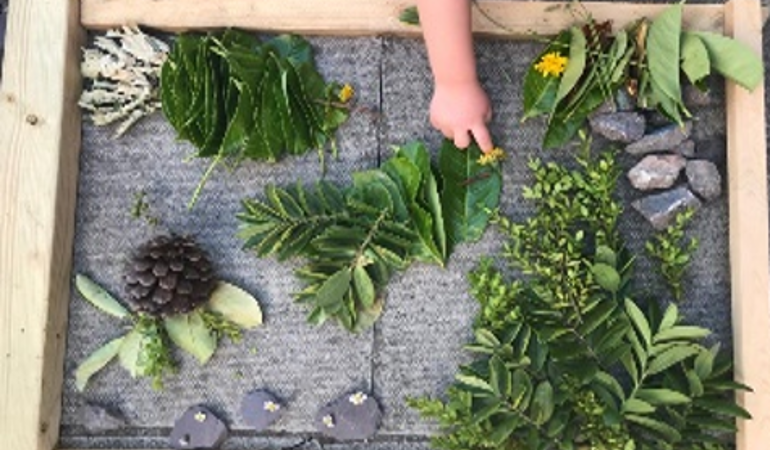Sowing the seeds of an early connection to nature through the Healthy and Sustainable Preschool Scheme

Sowing the seeds of an early connection to nature through the Healthy and Sustainable Preschool Scheme
The Healthy and Sustainable Preschool scheme is a national accreditation scheme which acknowledges pre-school settings as contributors to children’s health and well-being. The scheme covers a range of seven health topics including the natural environment. How does the scheme help develop an early connection to nature? We spoke to Emma Coleman, Cardiff Healthy and Sustainable Preschool Officer to find out.
“Adopting a whole setting approach, we encourage settings to focus on one health topic booklet at a time to benefit the settings’ children, staff, and families,” explains Emma. All the preschool criteria booklets promote outdoor learning opportunities by encouraging learners to make the most of the natural environment. For example, by getting out and being physically activity and developing healthy eating habits by getting stuck in and growing their own fruit and vegetables. I think that spending time in the natural environment has a positive impact on the children’s wellbeing and offers opportunities for them to try new things and improve their physical development skills.”
“Our team works with 49 preschool settings across Cardiff which include day care nurseries, Cylch Meithrin groups, playgroups, Flying Start settings and childminders. We work mainly with setting staff, demonstrating good practice, delivering, or organising training and signposting to information and resources. We hope that the information and good practice cascades through to the children’s families when they speak about what they’ve been doing at home. We’ve created a ‘30 days of activities’ leaflet to encourage parents/carers to continue the learning and make the most of their local green spaces. All the activities included can be easily completed with natural resources that can be easily found in the garden or whilst out for a walk.”
“All the settings we work with are promoting outdoor learning and we support them with activity ideas to use with the children. Many settings have mud kitchens, and we promote ideas to enhance the mud kitchen provision such as letting the children use the herbs that they have grown at the setting in their mud play. We encourage settings to make the most of the resources available to them, by asking for donations of saucepans, kitchen utensils and flowerpots and so on from parents/carers. Useful objects such as pallets are to be coveted and we encourage them to repurpose them to increase the biodiversity value of their grounds by creating bug hotels. To support staff development, we’ve funded ‘fruit and veg’ growing workshops to give staff the opportunity to develop their knowledge of planting and growing and we also include gardening tips and tricks along with information on what fruit and vegetables to grow when, in our monthly newsletter. We encourage settings to embrace the outdoors by suggesting activities that can be easily adapted to their outdoor space, that link to physical activity and relate well to story books.
“We recognise settings’ best practice by awarding certificates when they achieve one of the scheme’s seven topics and share their achievements on ebulletins and on Twitter. We hold a celebration event for settings to have their certificates presented to them. We hope that by working together and supporting settings, pro-environmental behaviours are established by learners in early life, ensuring that they develop a sustained knowledge, understanding and interaction with nature.”
